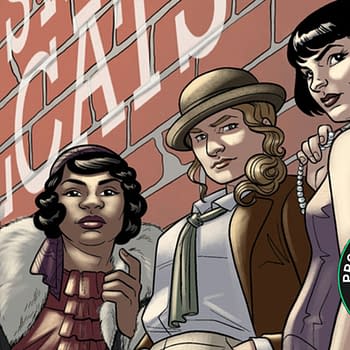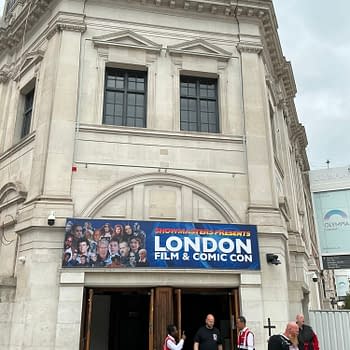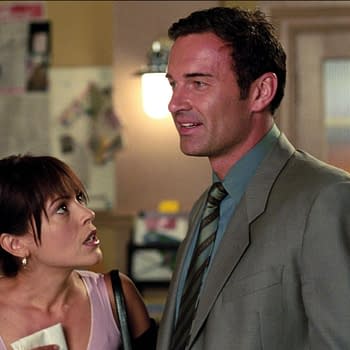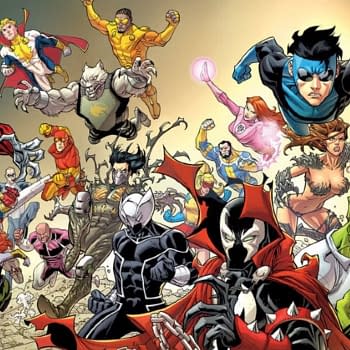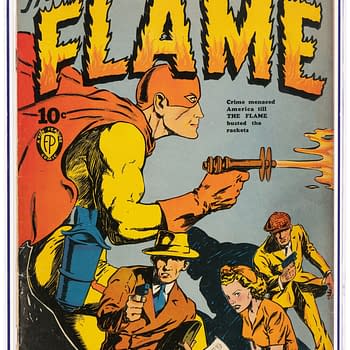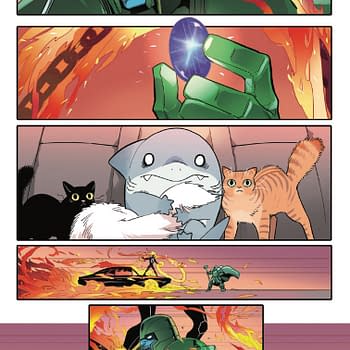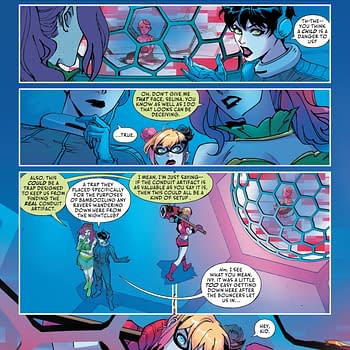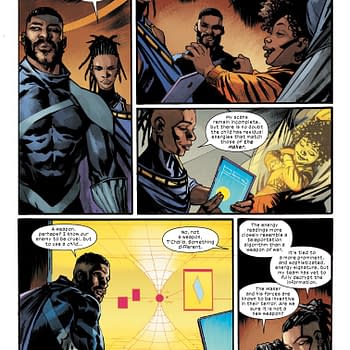Posted in: Comics | Tagged: Comics, entertainment
"Feige Couldn't Shine Ike's Shoes" – Marvel Board Members Talk Marvel Studios
There's been considerable discussion on Bleeding Cool, its message boards and wider forums regarding some of Bleeding Cool's reportage on the state of Marvel Studios and Marvel as a whole. And especially the divide between Marvel CEO Isaac Perlmutter and Head Of Studios Kevin Feige that saw the company split in twain, which has received all manner of planted spin of late.
Bleeding Cool readers will be familiar with all manner of stories regarding Marvel CEO Isaac Perlmutter, the homophobia, the racism and sexism – the strangulation – and more and more and more and more.
But it has also led to Ike Perlmutter being used as a boogeyman, a convenient scapegoat for any and all ills that Marvel Studios want to escape blame for. Why take the rap for an unpopular decision when you can point the blame at Perlmutter without fear of contradiction? Because Perlmutter is reclusive figure and doesn't respond to public statements, good or bad, people have been free to make such allegations without a response. And equally, take the credit for all the good.
Such as in the recent spate of conveniently-timed interviews with Shane Black, the Russo brothers and others, that have lionised Kevin Feige for the existence of the Marvel movies while damning Ike as a man trying to sabotage their success. And to present a Isaac Perlmutter who stops female and ethnic minority-led movies, have swept aside any counter-evidence. Such as the Marvel TV line, over which Ike has a far stronger influence, that has had two female solo TV series, an upcoming black lead series and word that he personally greenlit the Spider-Gwen comic book series and pushed for such a film at Sony.
In a couple of articles I wrote last week, I wasn't free to name sources. But the fallout gave me the opportunity to talk to a few of the folks who were part of Marvel Studios, when it made those baby steps that would see it grow into the multi-billion dollar juggernaut it is today.

Mort also reminded me that Ike came to the USA in 1967 with $250 and a limited education. He spent 45 years working with Ike Perlmutter, telling me "Ike is everything, He is the most effective executive I have met in business. He has a sponge for a memory, he deals with everyone even-handedly, he is direct, he communicates with everyone, he wants to know the bad news as well as the good, he's smart, he has an innate intelligence. "
Talking about the films, Mort explained to me that after the company emerged from bankruptcy, they still faced the same difficulties that saw the company go into Chapter 11 protection previously. But the sale and the production of the Spider-Man movies helped to turn things around and for things to begin to pick up.
When asked what the reason was for Marvel making their own movies, Mort was very clear, one word, "greed". He reiterated that Iron Man 1 and 2 were a big risk. Marvel was doing already doing well enough especially with Sony, but less so with Fox, as the Sony deal was based on a pre-bankruptcy deal. So when the X-Men movies were making a lot of money, Ike Permutter recognised and appreciated this – and the money that was being lost to Fox.
Mort says there was no lightbulb moment that led to the Avengers, it was a natural progression from X-Men and the Fantastic Four, working out how you leverage that. He pointed out that Iron Man was a second rate character no one wanted, and that Robert Downey Jr was a huge benefit to the franchise. Mort told me he sees for the most part that Marvel characters have developed from what Stan Lee did, the characteristics he gave them that would distinguish them in comics – and in movies.
As to Kevin Feige's role, he told me "I don't want to dismiss Kevin's role, but let's not make it larger than what it was". He points to Avi Arad as the boss with Ike in the mix. But when Avi left, Kevin had the studios to himself "with capable people like Fine, Buckley, Quesada, they knew the characters and participated in movie preparation and storylines."
Arad left in 2006 prior to the production on Iron Man, selling his Marvel shares in the process, also leaving David Maisel, thanked as Founding Chairman of Marvel Studios in the Avengers Age Of Ultron credits, to run the shop for three-and-a-half years, with the rest of the Marvel Creative Committee, before Feige was appointed studio head.

Halpin also emphasised the role of Avi Arad as producer in the success of the movies, as "he knew the characters better, he knew their universe and had the ability to keep the characters in character, so that Spider-Man didn't kill anyone or change his costume."
But he credited David Maisel as being instrumental in the movies existence. "He was the one who conceived them as a slate of movies and was able to finance them successfully, negotiating the deal, raising a $500 million line with no impact on Marvel's balance." Checking the figures, it was even higher, 525 million.
Halpin described Mort as the grandfather of Marvel, who would talk to Ike every day, and that he was one of the three board members with offices at Marvel, played an active management role on the board, counseling, mentoring and managing talent.
However, Halpin was also rather more abrasive comparing Kevin Feige and Ike Perlmutter, saying "Feige couldn't shine Ike's shoes" and that "it's all gone to his head, Feige is a legend in his own mind."
He told me that Perlmutter proved himself over fifty years of being a success at everything he'd done. That he took Marvel from having a market cap of $110 million to be being worth $4 billion in ten years, from a manufacturing company to an IP generator.
Halpin wanted to assure me that "the company was already doing well licensing the movies, but making the movies themselves added cache to the company and appealed to the likes of Disney" and that Maisel saw Iron Man was a billion dollar property, which helped launch Marvel into a different stratosphere" while Kevin showed up three-quarters of the way through.

Shortly thereafter, Maisel was hired as president and COO of the studio. As Maisel tells it, Feige then was a relatively junior executive giving script notes to studios. Maisel describes himself as Feige's boss at the time but also his friend and says the two had late-night talks about what the future could be.
Maisel says he had long before begun to ponder what would happen if Marvel owned its movies and could mix characters together as had been done in the comics, "so that each movie could become a lead-in to the next, and, basically, after the first movie, they're all sequels or quasi-sequels." Maisel says he was "very much inspired" by George Lucas' strategy on Star Wars: "If we could do movies similar to the box-office average of the [Marvel films] that had been released or even a haircut to those, significantly, Marvel could be worth in the billions."
Maisel lobbied to block the Captain America and Thor deals. "Ike will challenge your argument and your logic in a tough way sometimes, but he will listen, and eventually I convinced him to support what I needed to do to at least try to make a studio," he says. As an early proof of concept, Maisel says he made a deal with Lionsgate to do low-budgeted animated Iron Man and Avengers movies that would go direct to DVD. Lionsgate financed the films for a distribution fee and half the profit. "It allowed me to say to people: 'Look at the value of our IP. Here's someone paying all the money, and we have creative control and get half the profits,' " says Maisel.
As Maisel pressed for Marvel to own its live-action movies, Perlmutter and the board told him to give it a shot as long as Marvel wouldn't have to put up a dime

These are all individual accounts, they clearly have their own biases, as all accounts will do. And while I am never going to be Team Ike, with plenty of reporters and bloggers talking to people on the Marvel Studios side of the equation, I just thought it might be worth having a little balance to the conversation…






